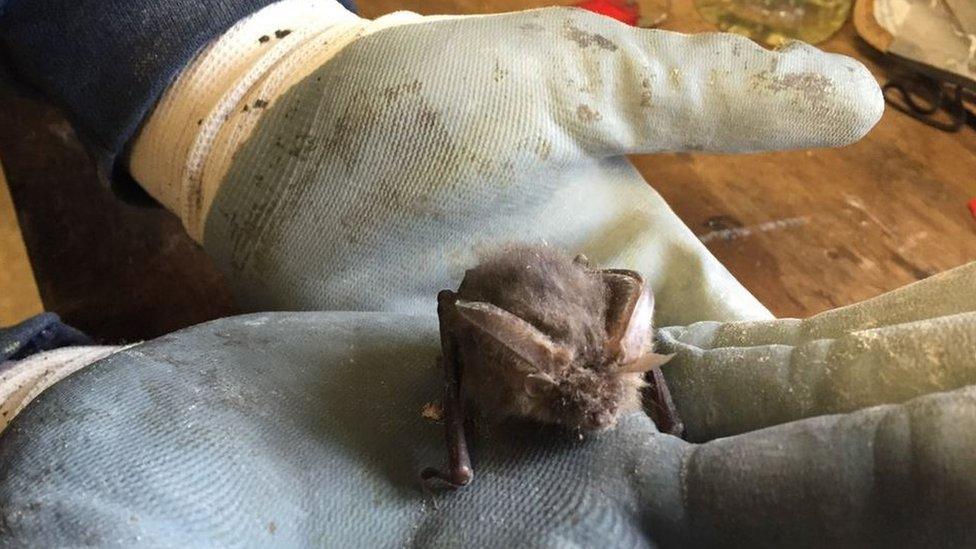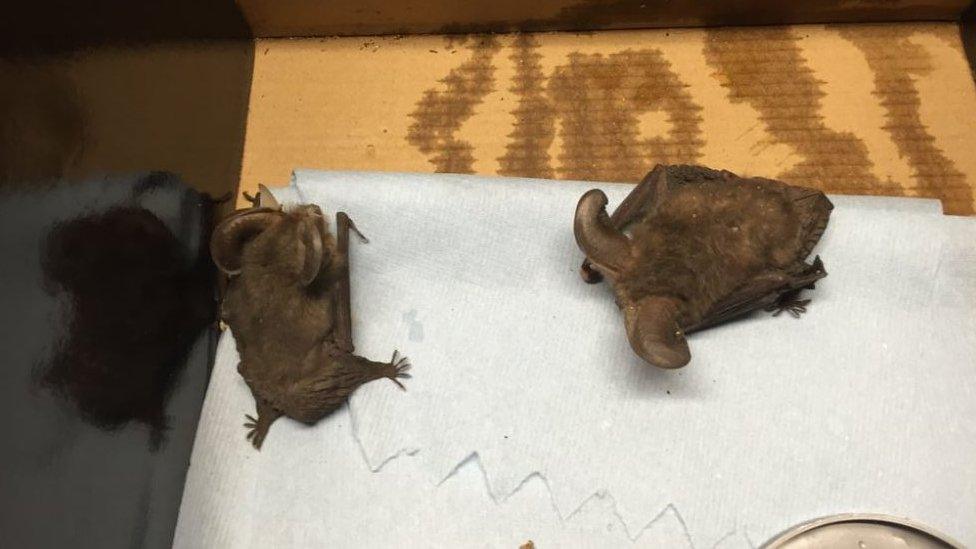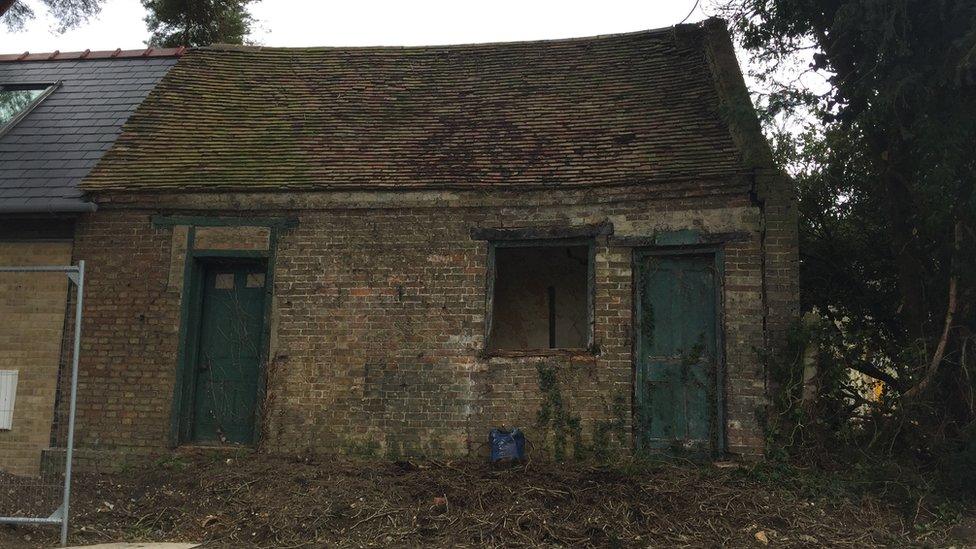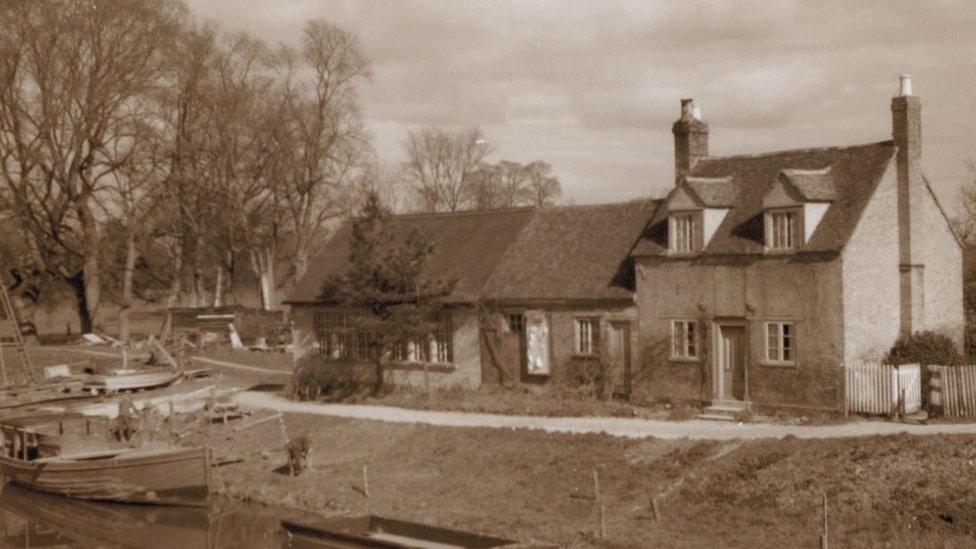Bat cave sanctuary created in derelict Cambridgeshire house
- Published

Two of the bats were found in a house as builders began working on it
A derelict house earmarked for eventual demolition is being turned into a sanctuary dubbed the "bat cave" after a number of the creatures were found.
Two brown long-eared bats were discovered by builders in a wall at a site near Cambridge belonging to the Conservators of the River Cam.
River manager Jed Ramsay said a bat expert described the old cottage as "bat heaven" containing dozens of them.
The house will now become a sanctuary, as reported in the Cambridge News, external.
Builders found the bats as they were working on in the 18th Century property in Clayhithe, near Waterbeach.
More on this and other stories from Cambridgeshire
It is thought the pair may have woken early from hibernation because of the warm winter, or they may have been disturbed by the workers, Mr Ramsay told the BBC.

The hungry bats will be returned to the derelict house when they have regained their strength
A volunteer from the Bat Conservation Trust took the undernourished bats away to care for them until they can be returned to their former home.
Bat reserve
She said the ramshackle house, full of holes, was an ideal habitat for them.
"The bat expert told us the cottage was pretty much 'bat heaven', so it wasn't long before everyone started calling it the bat cave," Mr Ramsay said.
"The irony is, we've put up loads of bat boxes around the site. There's not a single bat in any of them, but the cottage is apparently full of them."

The old cottage will become a sanctuary for bats

The cottage, seen here in the centre, was one of three buildings fronting the River Cam at Clayhithe
The site is being fenced off and the bat trust is going to provide signs marking it clearly as a bat reserve.
A spokesman said: "Bats only have one pup a year so the loss of a single roost can have a significant impact on bat populations.
"Old buildings do make good hibernation and/or maternity roosts for many of the 17 bat species that breed in the UK. This is especially true since many of their 'natural' roosts have been lost."